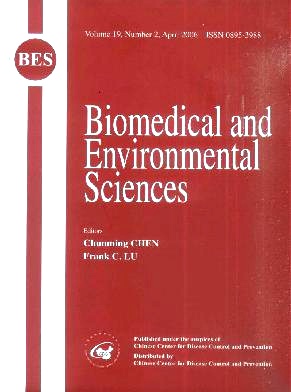Impact of Electronic Wastes Recycling on Environmental Quality
Abstract: To evaluate the environmental quality of Guiyu, Guangdong impacted by the electronic waste recycling industry. Methods The surface water, ground water and sediment samples taken separately from two sites that recycle E-wastes and other rubbish relevant to the E-waste recycling, and an agricultural area, were analyzed, and the data were used to evaluate the impact of E-waste recycling on the environmental quality of Guiyu based on environmental quality standards in China. Results The concentrations of lead and iron in the surface water samples significantly different in the three locations. The maximum value of lead in the first site was 8 times higher than the threshold of environmental quality standards for surface water. The concentration of iron in polluted sample was 22 times that of the background sample. Manganese and iron also showed a significant difference in ground water samples between the three sites. The amount of iron was 22 times that of the threshold of the quality standard for ground water, and 120 times that of the background sample. Moreover, the results of all the eight heavy metals showed significant differences among the sediment samples. The concentrations of copper, cadmium,nickel, and lead in the polluted samples were above the median benchmarks of National Oceanic and Atmospheric Administration (NOAA). The copper concentration of 2670 mg/kg was 10 times that of the median benchmark. ConclusionE-waste recycling has led to the severe pollution Guiyu.
| Citation: | JIAN-PING WANG, XI-KUN GUO. Impact of Electronic Wastes Recycling on Environmental Quality[J]. Biomedical and Environmental Sciences, 2006, 19(2): 137-142. |







 Quick Links
Quick Links
 DownLoad:
DownLoad: